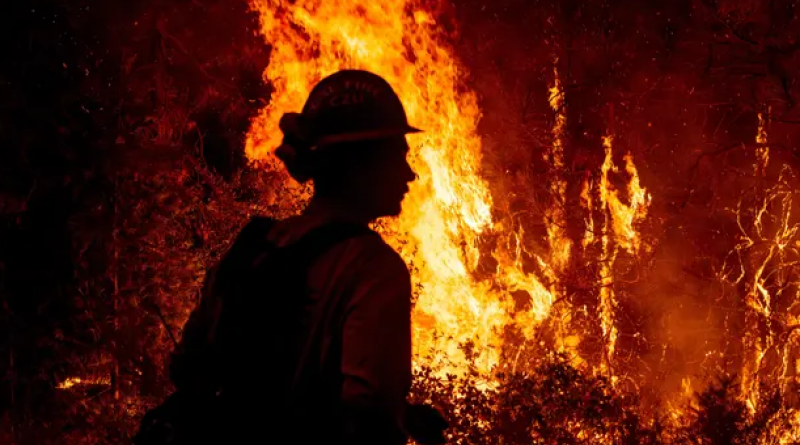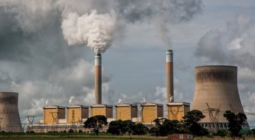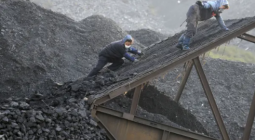Plans of four G20 states are threat to global climate pledge, warn scientists

‘Disastrous’ energy policies of China, Russia, Brazil and Australia could stoke 5C rise in temperatures if adopted by the rest of the world
A key group of leading G20 nations is committed to climate targets that would lead to disastrous global warming, scientists have warned. They say China, Russia, Brazil and Australia all have energy policies associated with 5C rises in atmospheric temperatures, a heating hike that would bring devastation to much of the planet.
The analysis, by the peer-reviewed group Paris Equity Check, raises serious worries about the prospects of key climate agreements being achieved at the Cop26 summit in Glasgow in three months. The conference – rated as one of the most important climate summits ever staged – will attempt to hammer out policies to hold global heating to 1.5C by agreeing on a global policy for ending net emissions of greenhouse gases by 2050.
The EU and UK have outlined emission pledges that could bring the world close to these aspirations. However, those of China, Russia, Brazil and Australia – which remain reliant on continued fossil-fuel burning – would trigger temperature rises of 5C if followed by the rest of the world. This dramatic discrepancy reveals a deep division over the energy and environment policies of the world’s richest nations. “Without more ambition from China, Brazil, Russia and Australia, Cop26 will fail to deliver the future our planet needs,” warned Tanya Steele, chief executive at WWF.
The stark difference between the climate plans of different G20 nations – who together are responsible for 85% of all global carbon emissions – was underlined last week in Naples, when a meeting of member states’ energy and environment ministers ended with the group failing to agree on a package of commitments to tackle climate change. “The G20 is failing to deliver,” said the online activist network Avaaz.
The G20 meeting had been viewed as a critically important staging post leading up to Cop26 and its failure to find common ground underlines the crucial differences that divide nations in the group and indicate it is not going to be easy to secure a meaningful accord in Scotland.
This point was backed by Yann Robiou du Pont, the lead researcher for the Paris Equity Tracker analysis. “The research underlines what many of us fear: major economies are simply not doing enough to tackle the climate crisis and, in many cases, G20 countries are leaving us on track [for] a world of more heatwaves, flooding and extreme weather events.”
A world that would be 5C hotter than it was before the Industrial Revolution, when fossil-fuel burning began in earnest, would be one in which a quarter of the global population would face extreme drought for at least one month a year; rainforests would be destroyed; and melting ice sheets would result in dangerous sea-level rises.
In addition, loss of reflective ice from the poles could cause oceans to absorb more solar radiation, while melting permafrost in Siberia and other regions would release plumes of methane, another pernicious greenhouse gas. Inevitably, temperatures would soar even further.
By contrast, scientists say that if temperature rises can be kept below 1.5C, then the worst impacts of climate change could be prevented – though they also point out that temperatures have already risen 1.2C, leaving the world facing very tight margins to avoid the worst impacts of global warming over the next 30 years.
The extent of the climate crisis has also been highlighted this month with extreme weather events causing devastation across the world: deadly floods have swept through Germany, Belgium and China, while massive wildfires have gripped the US and Siberia. Global warming has been implicated in every case.
“Ahead of Cop26, we now need to see action and we owe it to the most vulnerable countries to rally together. Failure to deliver on our commitments is not an option and we must not be found wanting,” said Alok Sharma, the former UK business secretary who is now president of Cop26. Sharma last week was strongly critical of countries such as “big emitters” Russia and China who must do more to tackle climate change, he warned.
Under the 2015 Paris Agreement, nearly 200 countries committed to submit new climate plans every five years with a goal to limit global warming to well below 2C, aiming at 1.5C, compared to pre-industrial levels. However, earlier this year, the United Nations issued a “red alert” over current climate plans, warning they were “nowhere close” to meeting the Paris goals.
The International Energy Agency recently said that if the world was to stay within 1.5C of warming, all further development and exploration of new fossil fuel sources should cease from this year.
President Joe Biden’s climate envoy, John Kerry, told the Observer that the US was carefully considering the implications of the IEA report. “I know that people are very heavily aware of the need to shift our programmes and policy [in a way that] really robustly embraces that,” he said. “Everybody in the world need to be working on this. We need to think differently. We should be pushing hard in a different direction [from fossil fuels].”
He said Biden was also working to ensure the US and China were aligned on the need to stay within 1.5C.
“The first thing [Biden] hopes about China is that China recognises the reality of where we all are, and where China is, and what we need to do to get this job done. China is a global leader with a special responsibility to make sure we are all meeting [climate goals]. We want to find common ground.”
He said there were no plans for a US-China summit, such as President Barack Obama conducted with China’s President Xi Jinping ahead of the Paris conference, but said such a meeting was “not out of the question”.
He added: “A lot of conversations with China have not yet arrived at agreement.”
25 July 2021
The Guardian




